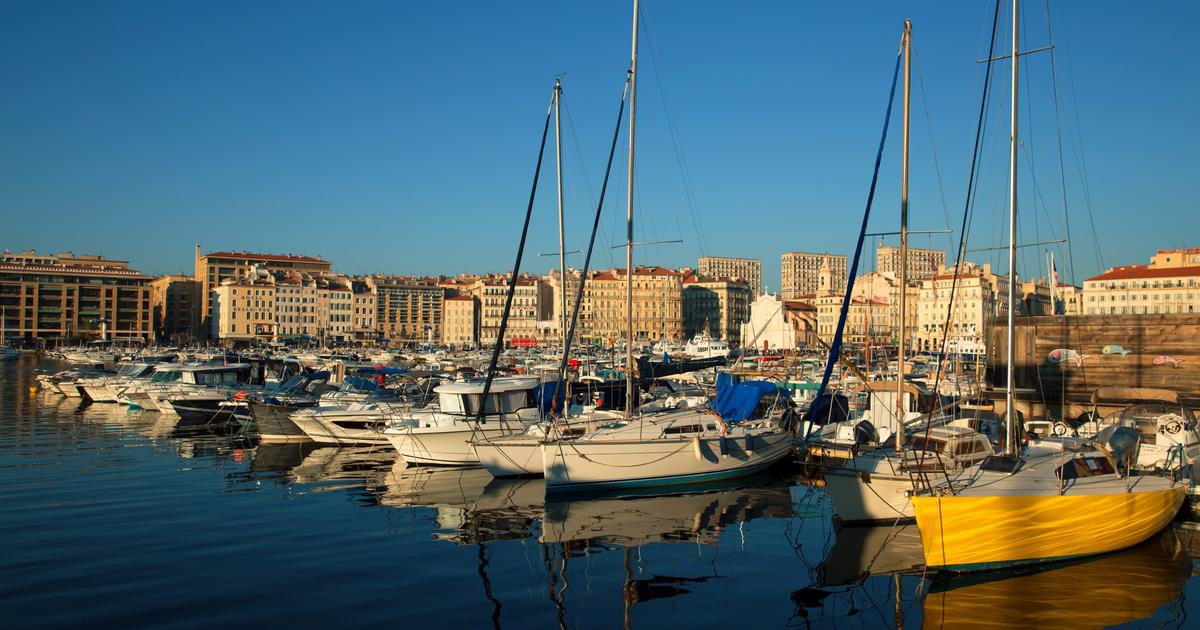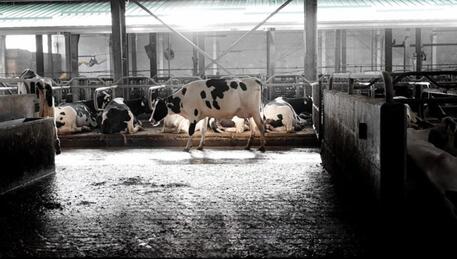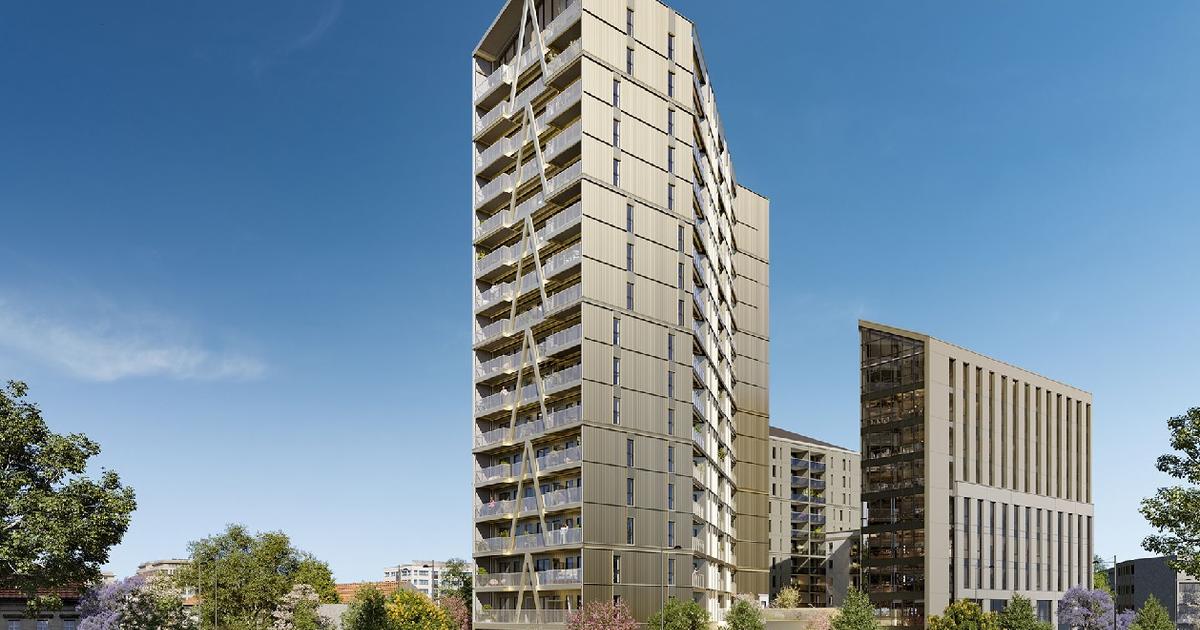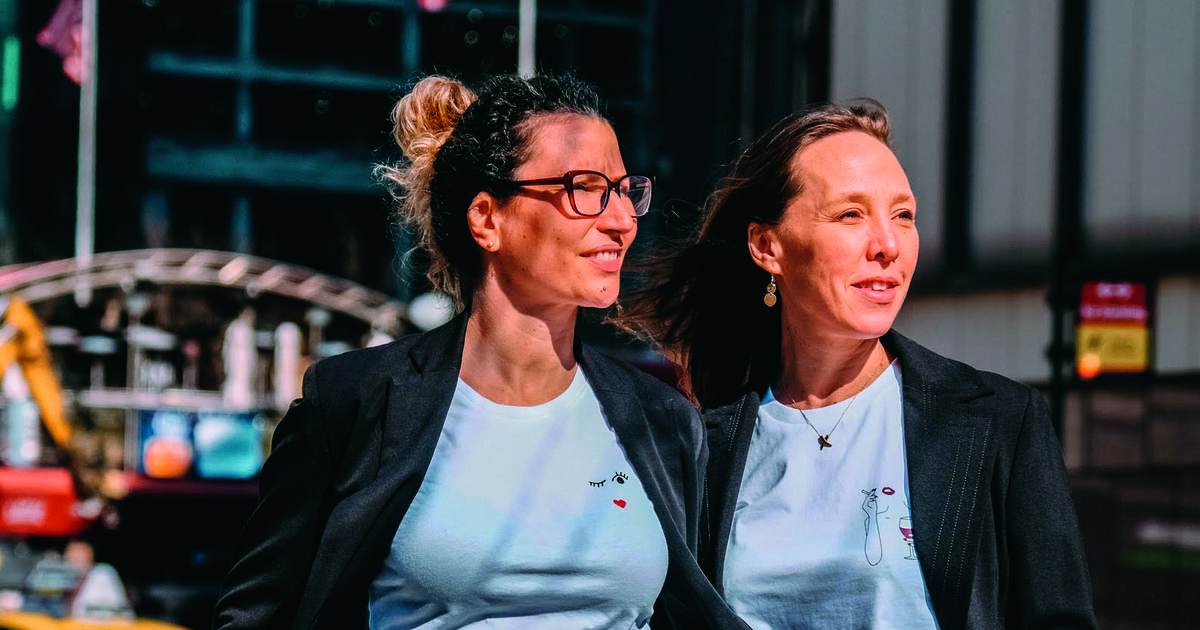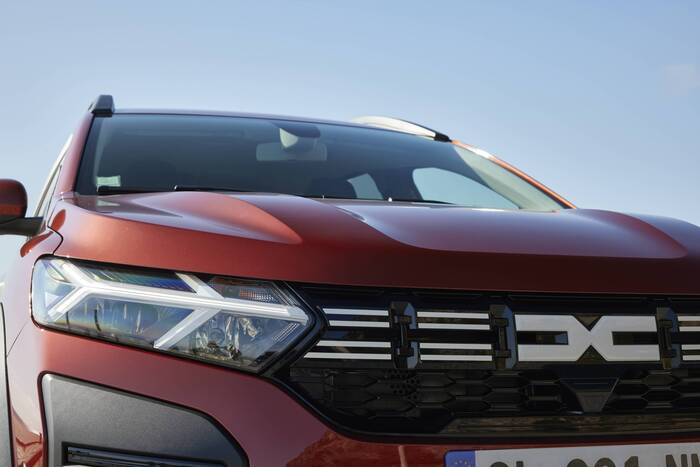They are all there, almost the entire ecosystem.
About thirty entrepreneurs, investors, directors of incubators and local elected officials from all walks of life, gathered at the Marseille-Provence Chamber of Commerce and Industry, a stone's throw from the Old Port.
This is the beating heart of Provençal technological innovation.
“Having united this ecosystem on a human scale is our greatest victory”, rejoices Diane Renaud, in her thirties, general manager of the local branch of French Tech, a national network of innovative companies, established in Aix-Marseille in 2019. , which brings together 600 companies.
For once, in this very masculine sector, women are numerous here and in key positions – we met them.
It's a source of pride for everyone, but, basically, almost no longer a subject.
I'
essential is elsewhere: this February morning, the local French Tech presents its results and its objectives.
One of them stands out more clearly than the others: “Make Aix-Marseille the impact capital.”
On video, The Women's House in Marseille
On all fronts
Of course, committed entrepreneurship is multiplying everywhere.
But here more than elsewhere, it seems obvious.
“Cleantech represents the first sector of activity for our members, ahead of health and maritime transport”, adds Diane Renaud.
Cleantech, and not greentech, more common but not precise enough in the eyes of local players, who innovate on all fronts.
Clean energies, sustainable agriculture, carbon-free transport, air, water and soil depollution… As the world's fourth cleantech metropolis, Aix-Marseille-Provence was designated European capital of innovation last December.
The Marseille city benefits from a label awarded to the hundred metropolises of the continent deemed capable of achieving carbon neutrality by 2030. At the same time,
we are creating more and more start-ups in Provence and we are raising more and more funds – 319 million in 2021 for members of French Tech.
Start-ups that accumulate awards: for the past five years, the metropolis has been the most awarded in the world at the CES in Las Vegas, high mass of innovation.
This sustained growth is the result, among other things, of all-out collaborations between start-ups, research laboratories and industrial groups, often in the service of gigantic projects.
Like those carried out with billions of euros on the great seaport of Marseille.
Responsible for the emission of 18 million tons of CO2 per year, or 25% of French industrial emissions, it recently won, like Le Havre, a call for projects from the
We looked to Marseille for a long time for something other than its strength in innovation, but that did not prevent us from working
Laurence Olivier
In short, Marseille la verte seems to be boiling.
“In reality, we have been at work for twenty-five years, which makes us a reference territory”, corrects Laurence Olivier, general manager of Marseille Innovation, the most important incubator in the region, created in 1996. a budget of 1.6 million euros, it hosts and supports an average of 150 entrepreneurs per year, and finances 12 via its own innovation fund.
“Our members are developing a wide range of technologies, particularly in digital – data, artificial intelligence, blockchain – and the industry of the future, many of which for ecological purposes”, she continues, guiding us through the corridors of La Belle de Mai, one of the Marseille Innovation campuses.
Since joining in 2007,
Laurence Olivier has seen the city gain recognition.
“We have long looked to Marseille for something other than its strength in innovation, she laments, but that has not prevented us from working, above all to respond to local issues, linked to the environment and the presence of the Mediterranean.
This is the strength of this unique city.”
Innovation, local DNA
Everyone confirms it: the Provençal capital has its own soul and a natural penchant for innovation.
“Marseille is a resourceful city, where everything has to be built,” smiles Diane Renaud.
Air pollution, rise in temperature, acidity and level of the Mediterranean, hinterland exposed to fires... The Aix-Marseille-Provence metropolis is at the crossroads of all the ecological crises, to which are added deep social inequalities.
Second largest city in France, Marseille is also the poorest of the six major French cities.
Béatrice Leduby, founder of Deki, a carbon-free delivery company, benefited from the support of the local ecosystem to get started.
Lou-Anna Ralite
"The project leaders settle here because this city is a wasteland", assures Laurent Lhardit, deputy mayor of Marseille delegated, among other things, to the economy.
A wasteland and a formidable springboard.
An open-air laboratory, we are constantly told.
"It's a difficult city but animated by a tremendous momentum, with a great diversity of profiles and a real emulsion", rejoices Béatrice Leduby.
This 52-year-old Breton, ex-Parisian who settled in Marseille at the end of the 1990s, created Deki – for “last kilometer” – in 2020. She welcomes us to her premises, half-offices, half-logistics platform, right in downtown.
Deki organizes the delivery of goods by small vehicles with zero carbon emissions, driven by well-paid delivery men.
“We emit ten times less CO2 than the average per delivery, explains Béatrice Leduby, leather jacket, gray hair and enthusiastic smile.
Within two years, we hope to process two million flows per year, out of the 21 million recorded by the city, and save 124 lives threatened by air pollution.
All thanks to the support of the local ecosystem – the region, the metropolis, Marseille Innovation and Zebox, the incubator created by the CMA-CGM, the world leader in sea freight and the leading private employer in Marseille.
"I wouldn't be here without this mesh, that's for sure."
and save 124 lives threatened by air pollution.
» All thanks to the support of the local ecosystem – the region, the metropolis, Marseille Innovation and Zebox, the incubator created by the CMA-CGM, world leader in sea freight and the leading private employer in Marseille.
"I wouldn't be here without this mesh, that's for sure."
and save 124 lives threatened by air pollution.
» All thanks to the support of the local ecosystem – the region, the metropolis, Marseille Innovation and Zebox, the incubator created by the CMA-CGM, world leader in sea freight and the leading private employer in Marseille.
"I wouldn't be here without this mesh, that's for sure."
Robots in the garrigue
There is a place where this network reveals all its strength: we are on the edge of Aix-en-Provence, on the Arbois massif, in the heart of a vast wooded area.
An army of peacocks roaming freely between the pines and the scrubland, their cries echoing between the buildings: welcome to the Arbois-Méditerranée Environmental Technology Park.
A unique place, the first of its kind in France, the second most important in Europe and the fourth in the world.
Administered by the Aix-Marseille-Provence metropolis, it brings together 1,500 people and concentrates several research laboratories, higher education establishments, platforms packed with high-tech tools and a start-up incubator.
“This welcomes 15 to 20 new companies a year, explains Frédéric Guilleux, 41,
With its intelligent shade structures, Ombrea, located at the Technopôle de l'Arbois, protects crops from global warming.
Lou-Anna Ralite
The "technopolitans", as they call themselves, work together with researchers, local authorities and large industrial groups, regular visitors to Arbois.
“We wanted to be incubated here for this unique network of partners and entrepreneurs,” summarizes Tanguy Goetz, co-founder of NepTech.
He and his two partners have left Paris and Lyon to develop here their river and maritime shuttles with a futuristic silhouette and electro-hydrogen propulsion, therefore without carbon emissions, supposed to be launched in 2024. NepTech, which comes to raise 1.2 million euros, is the perfect example of these collaborations facilitated by the technology park: it works with CMA-CGM, Alstom, EDF, Ensam d'Aix-en-Provence and HiSyLabs, another company of Arbois,
The futuristic, CO2-free boat from NepTech, one of the Technopôle's start-ups, should be launched in 2024. In the meantime, this miniature version has been tested in the port of Marseille and on a lake in 'Aix en Provence.
Lou-Anna Ralite
Beyond these industrial projects with potentially enormous impact, criss-crossing the vast area gives an idea of the diversity of the projects developed on the site.
“It's the hummingbird principle: everyone does their part,” smiles Frédéric Guilleux.
This is the case of Ombrea, which develops artificial intelligence-enhanced shade structures, installed free of charge in farmers' homes to protect their crops from global warming.
Its co-founder, Julie Davico-Pahin, finalist of the Madame Figaro-Business with Attitude 2021 Prize, chairs the French Tech Aix-Marseille.
Here, its neighbors are called Cearitis, which develops biological pest control solutions to replace pesticides;
Birds for Change,
whose smart perch teaches birds how to pick up small trash in exchange for a reward;
there is also the Mexican BiomiTech, at the origin of a mechanism for purifying the air using algae… “Despite the crises we are facing, I can only be optimistic, assures the director of the Technopôle.
I am surrounded by such brave and resilient people.”
We don't know what the technology will be capable of in ten years.
But it is important to put it at the service of the human race
Laure-Agnes Caradec
One would be tempted to share his enthusiasm.
But will tech be enough to meet the challenge of climate change?
With progress – and crises – accelerating, the debate is becoming increasingly heated between proponents of salvation through innovation and advocates of radical lifestyle change.
Between, to force the line, the apostles of Elon Musk and those of Greta Thunberg.
If bustling Marseille fascinates, sometimes to the point of vertigo, it also raises the question of the limits of innovation.
“She has none, in my eyes.
We don't know what the technology will be capable of in ten years.
But it is important to put it at the service of the human race”, answers Laure-Agnès Caradec immediately, scanning a huge model of Marseille.
Former urban planning assistant to Jean-Claude Gaudin,
mayor of the city for nearly thirty years, she is now an elected municipal opposition member, departmental councilor and president of Euroméditerranée.
We meet her at the headquarters of this public development establishment, created twenty-five years ago in the heart of the eponymous district, near the port.
Green city… and livable?
Long black dress, haughty port, Laure-Agnès Caradec lists the projects in progress.
Eco-designed buildings, new soil depollution techniques, creation of a soft mobility platform… A gigantic machine, Euroméditerranée is supposed to transform the city through the redevelopment of public space, innovation and calls for tenders.
As was the case with this marine geothermal station developed by Thassalia, a subsidiary of Engie, which heats or cools buildings using energy taken from seawater, with 70% carbon emissions in less.
From innovations of this magnitude, Euroméditerranée hopes to see hundreds more emerge.
It remains to be seen whether the inhabitants will be able to appropriate these new ways of living, of moving or of eating.
VS'
is the whole question.
“I don't want to impose a way of life, as we tend to do today, but to invent something smarter for the functioning of the city”, distinguishes Laure-Agnès Caradec.
The La Marseillaise tower and, to the right, the Blue Gate stand in the heart of the Euroméditerranée eco-district.
Lou-Anna Ralite
It prevents.
"The main arteries of the city reflect something of its vitality...", writes the Marseille journalist Philippe Pujol, winner of the Albert-Londres prize, in
La Chute du MONSTER
(Éditions Points).
“On Euroméditerranée (
the district, editor’s note
), the city is dead.
Dead smart city
.
A city without a soul has risen from the ground, without shops, without pedestrians outside, a smart city which ultimately only serves to delegate urban planning and development to large private groups.
Beyond the frantic race for impact, how can we imagine a green city suitable for all its inhabitants, including the most modest?
The question is valid.
If Marseille foreshadows the city of tomorrow, it may still have to find the answer.

